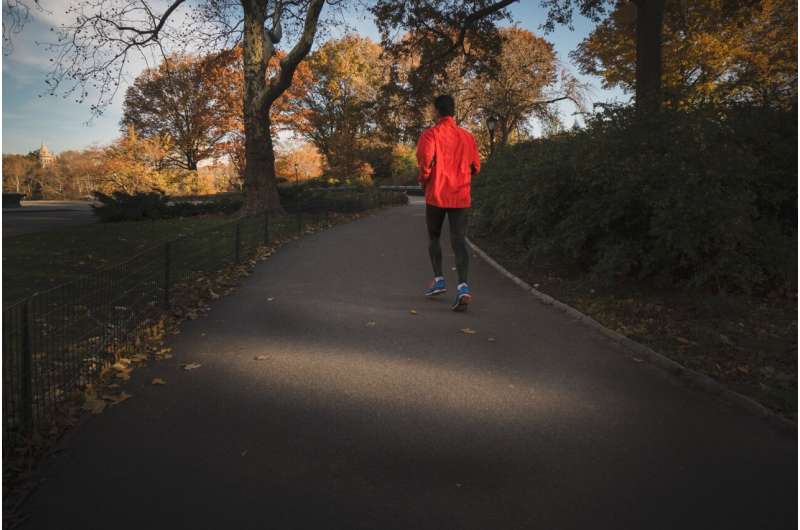This article has been reviewed according to Science X's editorial process and policies. Editors have highlighted the following attributes while ensuring the content's credibility:
fact-checked
trusted source
proofread
Exercise could help with common sexual complaint

Exercise appears to be a potentially effective way of treating premature ejaculation, according to a new study carried out by Anglia Ruskin University (ARU).
The new study, published in the journal Trends in Urology & Men's Health, saw researchers review 54 studies, which involved 3,485 participants from across the world, published over the past 49 years.
Premature ejaculation is estimated to affect anywhere between 30% to 83% of men, with the wide range of prevalence due to the lack of a widely accepted definition, making study design difficult.
The condition has few pharmacological treatments. The drug dapoxetine is approved for use outside of the U.S., while other off-label options often used include local anesthetics, clomipramine and tramadol. Many of these interventions have side effects. The ARU study examined non-pharmacological interventions and their increase in latency time, which is the time taken to ejaculate.
Researchers found that physical activity as an intervention had promising results in many of the studies, proving as effective as drugs but without associated side effects. One study included in the review found that running for 30 minutes, five times a week had as much effect on latency time as taking dapoxetine.
Another study included in the research suggested that carrying out pelvic floor exercises increased latency time from a median of one minute to three minutes.
The research also looked at approaches using various forms of psychotherapy, and studies showed generally positive results in increasing latency time.
Senior author Lee Smith, professor of public health at Anglia Ruskin University (ARU), said, "We know premature ejaculation is a common complaint among men worldwide. The lack of a clear definition of what is or isn't premature ejaculation has repercussions in terms of treatment, and there are relatively few effective drugs available.
"Our paper is a comprehensive review of studies into non-pharmacological interventions for this common complaint, and there are clear indications that physical exercise, including running and engaging the pelvic floor muscles, show promise in several studies.
"Given that drugs often have side effects, it appears that after all, the best medicine for avoiding premature ejaculation may well lie in exercise, and this possibility requires larger studies and further investigation."
More information: Damiano Pizzol et al, Non‐pharmacological approaches for treatment of premature ejaculation: a systematic review, Trends in Urology & Men's Health (2023). DOI: 10.1002/tre.903. wchh.onlinelibrary.wiley.com/doi/10.1002/tre.903?





















